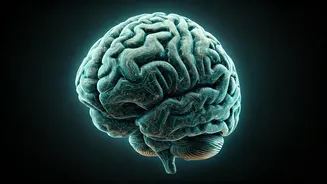Mindfulness Meditation Practice
Mindfulness meditation is a proven method for enhancing cognitive abilities and combatting age-related cognitive decline. Regular practice has been shown
to improve focus, concentration, and emotional regulation, thus promoting overall brain health. Studies indicate that just a few minutes of daily meditation can lead to significant changes in brain structure and function, specifically in areas related to attention and memory. To get started, find a quiet space, sit comfortably, and focus on your breath. Notice the sensations of each inhale and exhale, gently redirecting your attention whenever your mind wanders. Start with sessions as short as 5 minutes and gradually increase the duration as you become more comfortable. Over time, mindfulness meditation can help sharpen your mind, boost your ability to focus, and manage stress better.
Memory Boosting Games
Engaging in memory games can substantially improve cognitive performance and counteract the effects of brain aging. Games like Sudoku, crosswords, and memory card games effectively challenge the brain, encouraging the formation of new neural pathways and strengthening existing ones. Playing these games regularly forces your brain to recall information, solve problems, and make quick decisions, thereby improving memory and attention span. Start by choosing games that fit your skill level and gradually increase the difficulty as your cognitive abilities improve. Consistent engagement with these games can lead to noticeable improvements in your memory, focus, and overall cognitive function. Making it a part of your regular routine can keep your mind sharp and active.
Brain-Training Applications
Modern technology offers a variety of brain-training apps specifically designed to enhance cognitive skills. These apps utilize interactive games and challenges that target various aspects of brain function, including memory, processing speed, and problem-solving abilities. They provide personalized training programs that adapt to your skill level, ensuring continuous improvement. Such platforms offer various exercises, from logic puzzles to language games, to stimulate different parts of your brain. By incorporating these apps into your daily routine, you can effectively enhance your mental agility and reduce the risk of cognitive decline. Regular use of these applications can also help enhance your overall mental performance.
Learning New Skills
Taking up new skills is a powerful way to stimulate the brain and enhance cognitive function. Learning a new language, mastering a musical instrument, or taking up a new hobby can stimulate brain activity and promote neuroplasticity, which is the brain's ability to adapt and reorganize itself. When you learn something new, you create new neural connections, which improve your memory and cognitive abilities. Choose an activity that genuinely interests you and dedicate time each day to learning and practicing. Whether it's learning to play a musical instrument, taking up a new sport, or studying a different language, the process will help to increase your brain function and keep your mind active and adaptable. This process can significantly improve mental sharpness and overall well-being.
Physical Exercise Impact
Physical exercise plays a vital role in preserving cognitive health and preventing brain aging. Regular exercise boosts blood flow to the brain, supplying it with more oxygen and nutrients essential for optimal function. Exercise also stimulates the release of brain-derived neurotrophic factor (BDNF), a protein that supports the growth and survival of brain cells. Engaging in activities like brisk walking, running, swimming, or dancing enhances memory, focus, and mood, significantly reducing the risk of cognitive decline. Aim for at least 30 minutes of moderate-intensity exercise most days of the week, and you’ll support your brain health.




















